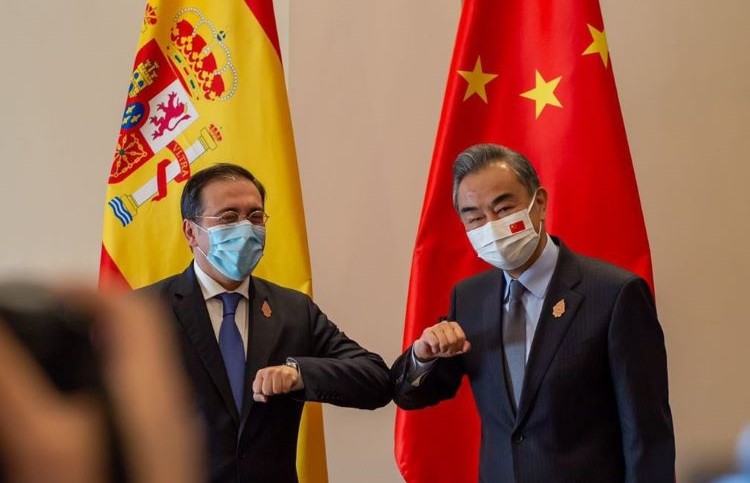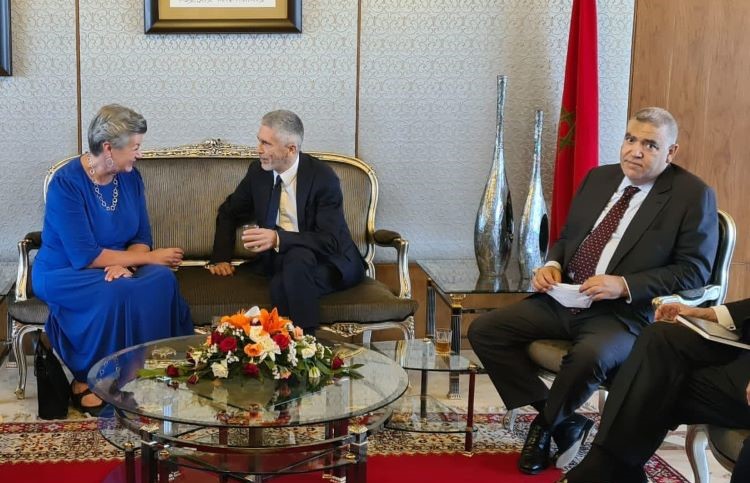Eduardo González
The participation of the Russian Foreign Minister, Serguei Lavrov, and bilateral meetings with his counterparts from China and the US, among others, marked the participation of the head of diplomacy, José Manuel Albares, in the G20 ministerial meeting held yesterday in Bali (Indonesia).
The meeting “has focused on Russia’s illegal and unjustified aggression against Ukraine and its consequences: the food crisis, the energy crisis and the violation of international legality by Russia, which we can only address from multilateralism,” Albares told journalists at the end of the meeting. “Although there has obviously been a confrontation of opinions, a majority of G20 members have expressed our rejection of Russian aggression against Ukraine and the need to return to international legality,” he continued.
“We have all been here, although it is also true that not all of us have been here in the same frame of mind,” he said, expressly referring to Lavrov. “A majority of us have come to build, to work together, to seek peace and prosperity in the world and some have simply come to leave their message and leave,” continued Albares, for whom the Russian minister’s intervention before the rest of his G20 counterparts “had, of course, no basis with the reality of what is happening.”
“I have made it clear, when I have intervened on behalf of Spain, that what is happening in Ukraine is an illegal aggression and that the EU sanctions have nothing to do with the food crisis because, precisely, they exclude grain and food from these sanctions, and that it is the Russian attitude, preventing grain from leaving, bombing silos and fields, which is causing this situation,” he stated.
Meeting with Wang Yi
Regarding his bilateral meetings on the sidelines of the G20 meeting, Albares highlighted the one he held with the US Secretary of State, Antony Blinken, “who congratulated us on the organization of the NATO Summit”, and with his Chinese counterpart, Wang Yi, with whom “we have agreed that he will probably visit Spain after the summer, and I will visit him in China as soon as possible”.
“China is a fundamental actor for any global challenge and very especially for peace and stability”, warned the minister, who appreciated in Wang “a constructive attitude to face all the global challenges, because it is impossible to face challenges such as peace and stability, climate change and the food crisis without counting on China”. As reported by Albares himself on his Twitter account, the Spanish minister also asked his Chinese colleague for “his active collaboration to put an end to the war in Ukraine”. Wang Yi was, precisely, one of the few ministers who met in Bali with Lavrov.
On the other hand, according to diplomatic sources informed the Europa Press agency, the Chinese minister announced to Albares the forthcoming resumption of direct flights between the two countries, which were suspended as a consequence of the pandemic. In order to be able to travel to China, Beijing will require two PCRs to be carried out in two different centers, the first 48 hours before the flight and the second 24 hours before. According to the same sources, they also discussed the celebration, in 2023, of the 50th anniversary of the establishment of diplomatic relations between the two countries and the upcoming opening of a Instituto Cervantes in Shanghai, the second center of this institution in China after the one in Beijing.
Albares also held bilateral meetings in Bali with his counterparts from Mexico, Marcelo Ebrard; Brazil, Carlos França; Japan, Yoshimasha Hayashi (to whom he conveyed his “firm condemnation” for the assassination of former Prime Minister Shinzo Abe); Singapore, Vivian Balakrishnan; South Korea, Park Jin; and Indonesia, Retno Marsudi, whom he congratulated for the organization of the ministerial meeting and with whom he signed a political consultation agreement.







